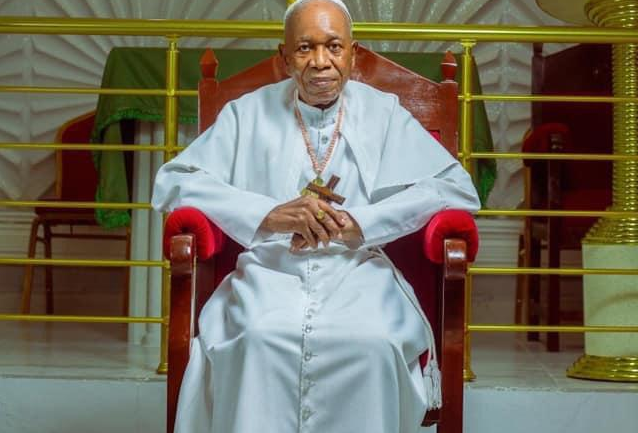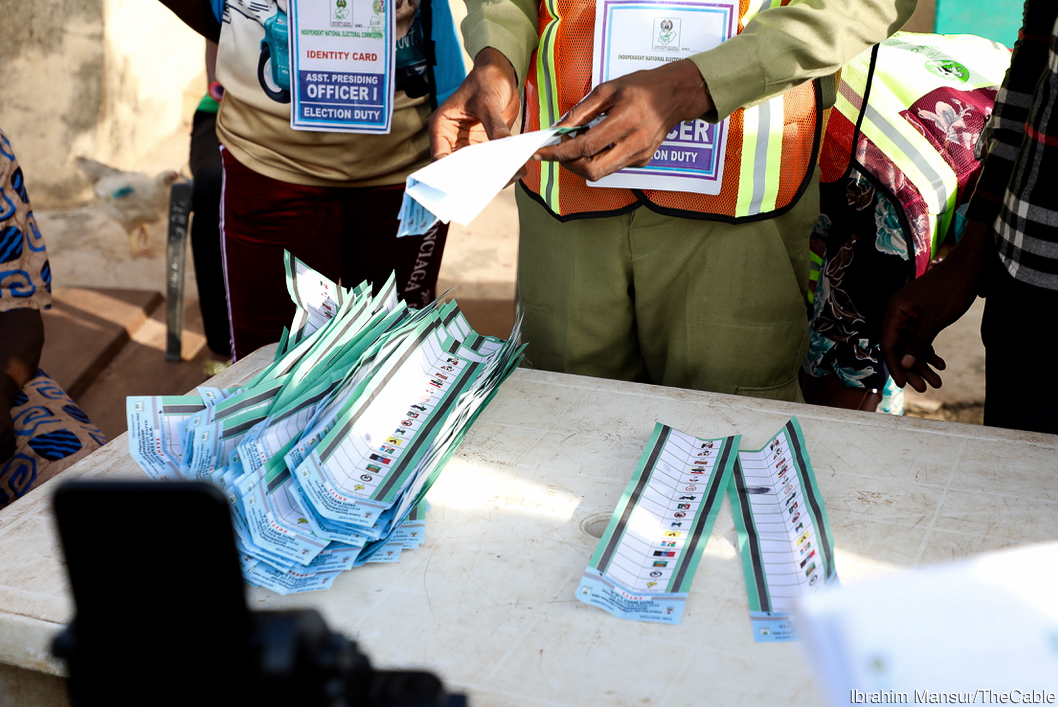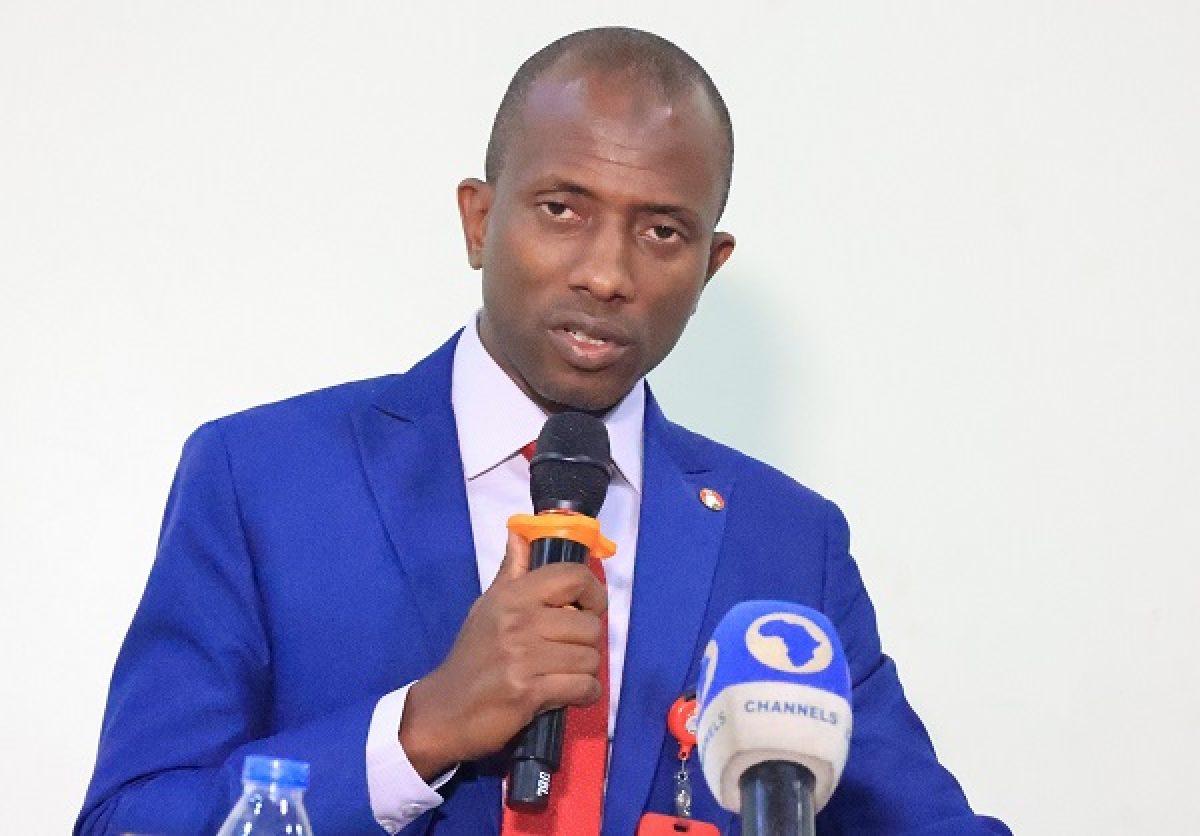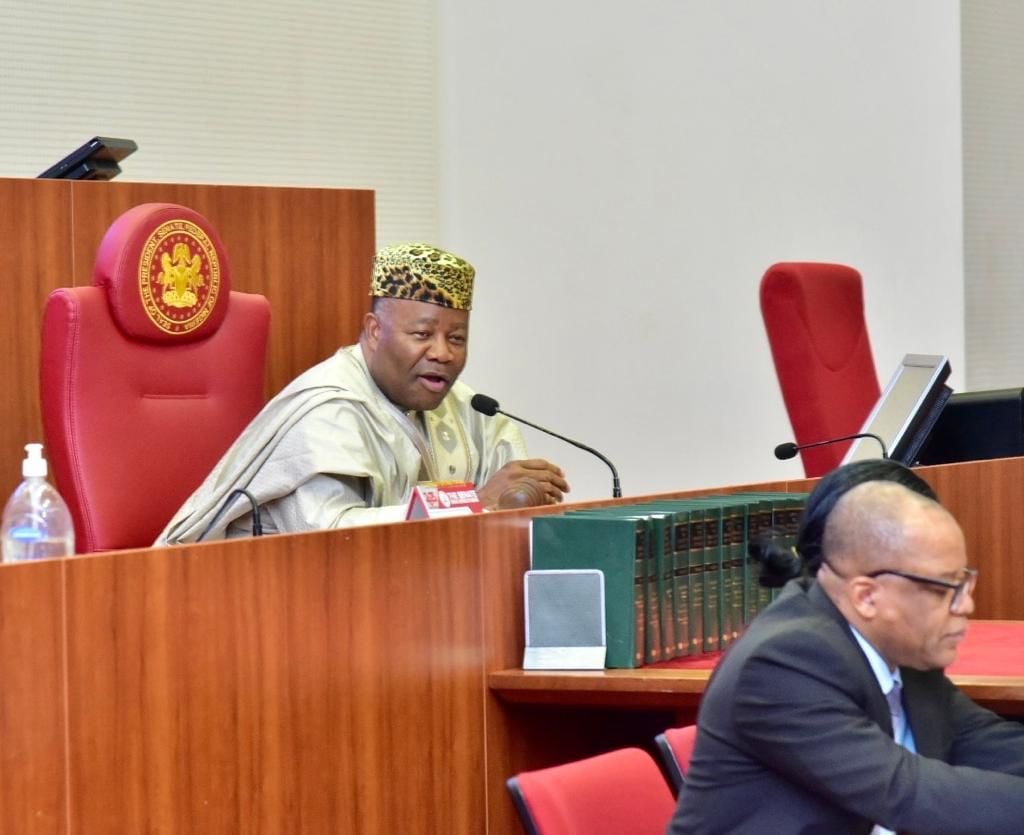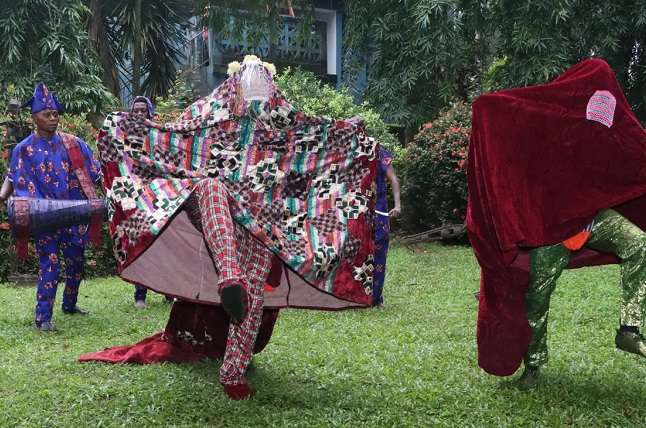BY JOHN ONAIYEKAN
Introduction:
It is a great honour for me to be invited to pay tribute to His Eminence Prelate Sunday Mbang, on this formal occasion here in his home environment in the city of Uyo. I take this opportunity to recall and celebrate certain salient points of his life journey at which providence brought our paths to cross.
I will recall six points briefly as follows:
Advertisement
Mbang, the scripture scholar
Starting from the beginning, my first contact with Prelate Mbang was when he landed at the Department of Religious Studies at the University of Ibadan as a young scripture scholar and doctorate graduate of the prestigious ivy league Princeton University in the United States. At that time, Dr Sunday Mbang found himself in the Department of Religious Studies whose emphasis was on academic and comparative study of the three main religious traditions in Nigeria. Its philosophy was encapsulated in the title of the official journal of the department ORITA, a Yoruba word meaning a meeting point on a crossroad. This was a reflection of the idea of the founder of the department, the British academic, Rev. Prof Parinder. His interest was rather on the phenomenology of religions, with little attention and interest to faith convictions and commitment, which he suspected to be obstacles to objective professional academic exercise and approach to the study of religions. That was the reigning academic fashion in that era of rabid secularism. It is not surprising that the heads of that department namely; Parinder, followed by Idowu and at the time of the arrival of Dr Mbang, Awolalu, were all specialists in African traditional religion, even though they were all also ordained Christian ministers.
The department had three sections; African traditional religion, Christianity and Islam. The teaching staff was practically all ordained Christian ministers. These included also the teachers of Islam, in a section of Islam effectively boycotted by Muslims, students and teachers alike, who had moved into a later established department of Islamic and Arabic studies. The Christian section was quite weak since it was neither a department, less still a faculty, of Christian theology. Landing in this environment, with a fine doctorate in Biblical Studies from the prestigious Princeton University, Dr Mbang found himself very much underused, in terms of Biblical scholarship. At that time, I was the rector of SS Peter and Paul Major Seminary Bodija, where I also occupied the Chair of Sacred Scriptures, armed with my own doctorate in Sacred Scripture from the best Pontifical University in Rome. Our first meeting was enough to make us bond together. We shared an interest in high-level Biblical Studies.
Advertisement
Soon Mbang was withdrawn to serve under Patriarch (Prelate) Prof Idowu at the headquarters of the Methodist Church Nigeria. On my part, I too was withdrawn by the Pope from Bodija Seminary and appointed Bishop in Ilorin. But the bond established grew stronger from academic to pastoral and church leadership.
Mbang, president of CAN
Our next serious contact was in the context of the Christian Association of Nigeria (CAN) in which both of us got involved as young bishops. He became president of CAN after Archbishop Okogie of Lagos. I served later as his deputy. We worked very well together to stabilise the turbulent religious environment of those days. Much was also done to streamline the organisation of CAN with a lot of effort to draft a workable constitution.
Many government policies exacerbated the conflict situation between Christians and Muslims in Nigeria, making harmonious living together between us challenging. As CAN president, Prelate Mbang brought into play his tremendous attitude toward peacebuilding. Even among our different Christian groups, he had to calm frayed nerves every so often.
Advertisement
Mbang and the establishment of NIREC
This was due to the leadership and spirit of peace and harmony of Prelate Mbang. He facilitated a fruitful discussion and decision to reach out to the Muslim leadership in Nigeria for the purpose of creating a forum for dialogue in view of promoting better mutual understanding and reducing inter-religious tensions. He shared this proposal with then-President Olusegun Obasanjo during a courtesy visit with him at the Presidential Villa. The president jumped on the idea. He facilitated a meeting of the leadership of the CAN with the counterpart of the Supreme Council for Islamic Affairs (SCIA).
The meeting took place at Sultan Machido’s Palace in Sokoto, where, as if by miracle, a decision was taken to establish the Nigerian Inter-Religious Council (NIREC). An inauguration date was promptly chosen for September 29, an event that was facilitated in the International Conference Centre, Abuja, with the leadership of Prelate Mbang and Sultan Machido and with President Obasanjo himself presiding over the event. Prof. Yusufu Obaje, who was then State House Chaplain, was given charge of all the logistics, an assignment he carried out in a most admirable manner. It was natural that he became the first coordinator of the council until he left office with President Obasanjo.
So great was the role of Mr President in the establishment of NIREC that some rumours gained ground that the NIREC was established by the government. But it was always understood by all concerned that the Council was a free association of the leadership of our two main religions. Subsequently, a constitution was drawn up with the leadership under the co-chairmanship of the CAN president and the Sultan of Sokoto, an arrangement that has continued until now.
Advertisement
Prelate Mbang will forever be remembered as the ideological initiator of the NIREC. When his term ended, there was a peaceful transfer of Presidency to me. Our time together in the leadership of CAN was a very exciting and spiritually enriching experience.
Mbang and Catholic/Methodist dialogue
Advertisement
Worthy of note is the role of Prelate Mbang in establishing a formal forum of dialogue between Catholics and Methodists in Nigeria. By divine providence, in 1979, the Pope appointed me a member of the international Catholic-Methodist dialogue committee, with seven members from each side. We met each year for a week in alternating venues, discussing doctrinal and pastoral issues to bring our communities closer together. It was, for me, a most significant experience and a good opportunity to get to know more about the Methodist Church. I was the only black person on the committee of 14 high-level church leaders and theologians.
Coming back home, I shared my experience of the International Catholic-Methodist Dialogue Commission with Prelate Mbang. At that time, I myself, providentially, had become president of the Catholic Bishops’ Conference of Nigeria, (CBCN). We both agreed to replicate here at home the dialogue between our churches at the global level. Thus began the bilateral Catholic-Methodist dialogue committee which is still active until now.
Advertisement
Mbang, the global Methodist leader
The leadership qualities of Prelate Mbang have been appreciated not only at home but globally. His emergence as the president of the World Methodist Council, making him the leader of all Methodists globally, was news of great joy and pride not only for the Methodist Church Nigeria but for all Nigerians, Christians and non-Christians alike. In that capacity, his performance was applauded all over the Methodist world. All this was God’s own doing, a wonder in our eye.
Advertisement
It was for me a personal pride when our own Prelate Mbang led a delegation of the Methodist Church to the Vatican and had a well-publicised private audience with the Holy Father, Saint Pope John-Paul II. His visit made a great impression on our Catholic Church leaders in the Vatican. The officials of the Pontifical Council for Promoting Christian Unity, which he visited with his entourage, told me later how impressed they were with my Nigerian brother Church leader. May the Lord be praised.
Mbang, the statesman
For about three decades, Prelate Mbang was a national prominent churchman. He was a genuine “man of God’’ in the line of the great prophets of old who spoke in God’s name to both rulers and people of the nation. He proclaimed the truth to all and sundry in clear terms, without fear or favour. He did this with a deep sense of patriotism and a sincere love for the nation. He fully deserved the award of a Commander of the Niger, (CON). His prophetic voice continued to ring out till his last breath. He had an unflinching faith in the destiny of Nigeria as a truly great nation. It must have pained him not to have seen his dreams realised, as he made his final exit from this valley of tears. It is now up to us left behind to sustain our dreams, praying and working that the nation finds its way to the greatness that the Almighty and Merciful God has destined for it.
In the last few months and especially since the highly disputed presidential elections of last February, the nation has been facing serious challenges and uncertainties about our national cohesion. All eyes are now on the courts to deliver a final, fair and true judgement. This should be done as soon as possible, so that the nation may begin to stabilise and move forward.
The verdict, even of the Supreme Court, will certainly not please everybody. But we all have to prepare ourselves now to accept it as the best we can get, and move on to join hands to restore and rescue our nation. We do well to remember the wise saying of the late Justice Chukwudifu Oputa, JSC, who declared: “The verdict of the Supreme Court is final, but not necessarily infallible. It is not infallible, because it can be wrong, and one may not necessarily agree with it. But it is final, in the sense that there is no higher court to appeal to, except to the court of the Almighty and All Just God”. We pray for the courage to be sincere with ourselves, to forgive one another, and to work for national reconciliation in order that we may achieve peace and genuine unity. We can hear Prelate Mbang sending this message of peace and unity to our nation from his heavenly abode. May God save our nation.
Mbang and his autobiography
On a final note, I am glad to report on this solemn occasion that the last honour that the Prelate Mbang conferred on me was to send me the manuscripts of his precious autobiography to review and to write a preface. This is an honour of which I shall be eternally grateful. The publication is for me what we in Christian literature call ‘’hagiography’’, literally meaning a “sacred writing”. Like the classical “Lives of the Saints”, it is a solid material, with valuable spiritual edification for the reader. It readily reminds us of the famous “Confessions” of St. Augustine. In this and in his other publications, he will continue to communicate with us from his eternal abode in paradise.
Conclusion
Prelate Mbang, RIP, resquiescas in pace, rest in peace, while you keep an eye on the church of God you have left behind to continue the task of spreading the good news of our Lord and Saviour, Jesus Christ.
Keep an eye also on your beloved nation of Nigeria, presently going through turbulent times and self-inflicted pains. We, whom you have left behind, will continue to sustain your stubborn faith in the basic goodness of the Nigerian people, of all tribes and creed, and in the ever-abiding and all-powerful loving care of God over us. God bless Nigeria.
Views expressed by contributors are strictly personal and not of TheCable.
Add a comment
